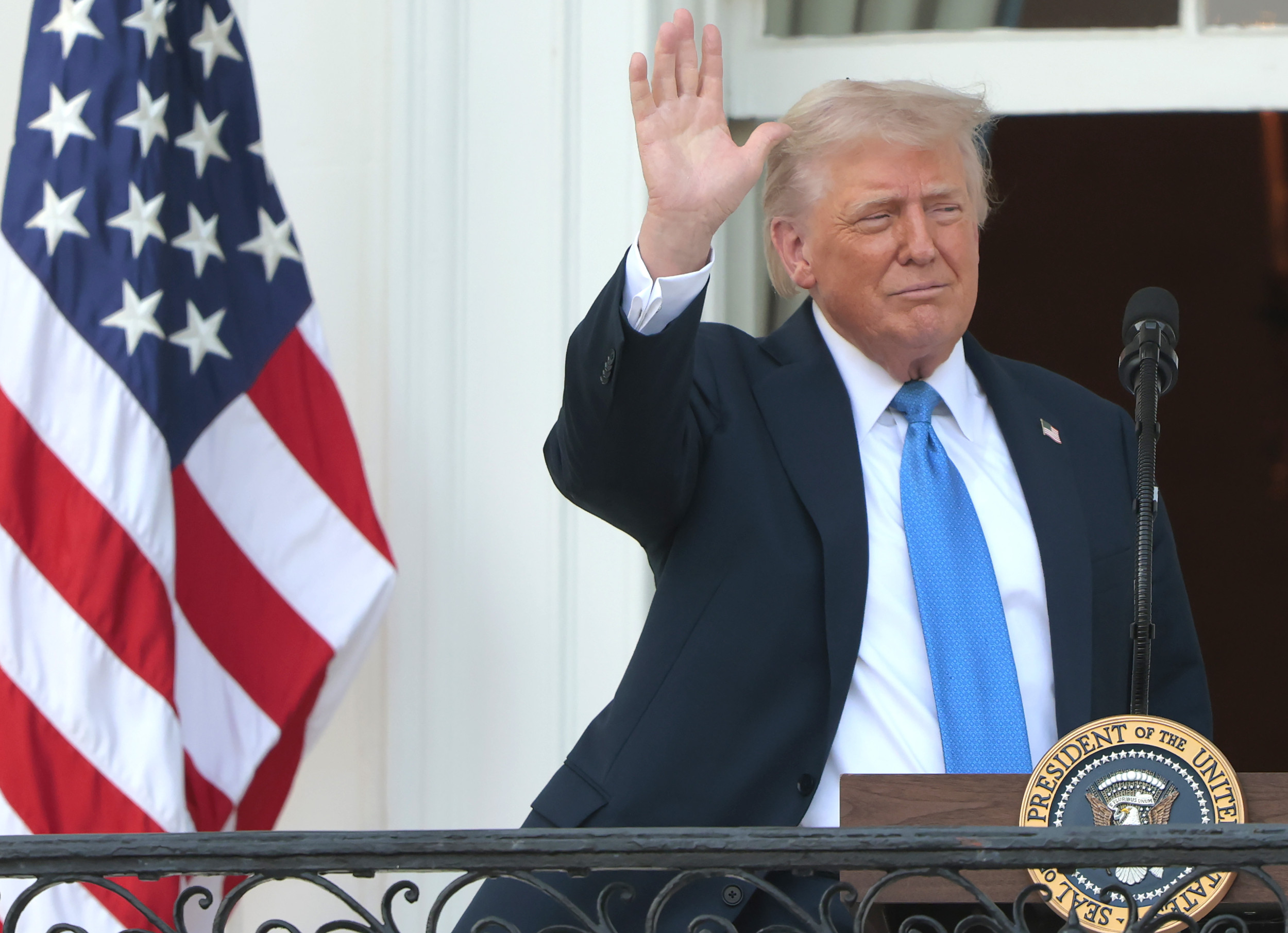
President Donald Trump has reinstated and expanded a travel ban targeting citizens from 12 countries, citing national security concerns following a recent terror attack in Boulder, Colorado. The National Iranian American Council (NIAC) told Newsweek the move would “not make America safer.”
However, the country of origin of the attacker—Egypt—is notably absent from the list, raising questions about the ban’s effectiveness and underlying motivations.
Newsweek has contacted the White House for comment.
Anna Moneymake/Getty Images
Why It Matters
The new travel restrictions, set to take effect on June 9, are part of the administration’s efforts to prevent foreign terrorist threats. Yet, the omission of Egypt, the home country of the Boulder attacker, Mohamed Sabry Soliman, suggests potential inconsistencies in the policy’s application.
What to Know
On June 1, Soliman, a 45-year-old Egyptian national, carried out a firebombing attack at a pro-Israel rally in Boulder, injuring 12 people. Soliman, who had overstayed his visa, used Molotov cocktails and a makeshift flamethrower during the assault.
In a televised address from the Oval Office on Wednesday, Trump referred to the attack as evidence of the “extreme dangers” that foreign nationals who have not been properly vetted pose to the U.S. The Department of Homeland Security said Soliman had overstayed a tourist visa.
Trump announced a reinstated ban would prohibit entry for citizens from 12 countries; Afghanistan, Myanmar, Chad, the Republic of Congo, Equatorial Guinea, Eritrea, Haiti, Iran, Libya, Somalia, Sudan and Yemen.
Tougher restrictions, but not outright bans, would be imposed on visitors from Burundi, Cuba, Laos, Sierra Leone, Togo, Turkmenistan and Venezuela.
There are a few exemptions, including athletes traveling for major sporting events, some dual nationals and Afghan nationals who have Special Immigrant Visas. Exemptions may also be granted on a case-by-case basis.
However, despite being the origin of the Boulder attacker, Egypt is not included in the list of banned or restricted countries. This exclusion has led to criticism and questions about the criteria used to determine the targeted nations.
When asked why Egypt was left of the list, Republican Senator Markwayne Mullin of Oklahoma told CNN that the order was being considered before the Boulder terrorist attack.
When pressed on whether the attack had sped up the process, Mullin replied, “I don’t think the Boulder incident had anything to do with this moving forward because this conversation has been going on for weeks.” He added that Trump only used the Boulder attack as “an example of why we need to do this.”
During his first presidential term, Trump ordered a travel ban against people from seven Muslim-majority countries from coming to the U.S. which was dubbed by critics a “Muslim ban.”
Following legal challenges, the order was amended before being upheld by the Supreme Court in 2018 although it was repealed by Trump’s successor Joe Biden in 2021.
In a statement to Newsweek, the NIAC said that Trump’s first ban had impacted over 100,000 Iranians and visa processing had not fully recovered.
NIAC president Jamal Abdi said the order will “not make America safer, but it will deeply harm the countless Americans, including in the Iranian-American community, whose loved ones will be arbitrarily denied visas or experience racial profiling and discrimination at ports of entry.”
Trump’s order announced on Wednesday does not just target majority Muslim nations, with the president saying the list was based on visa overstay rates or political instability.
Human rights groups have criticized the order, with Amnesty International USA saying it would spread “disinformation and hate.” The group Human Rights First said the ban would harm refugees, asylum-seekers, and other vulnerable populations.
Venezuela called the Trump administration “supremacists who think they own the world,” while Somalia said it would engage in dialogue to address the concerns raised.”
However, Louisiana Representative Clay Higgins, a Republican, told the BBC on Thursday that Trump had a mandate from the American people to address illegal and dangerous immigration and that the U.S. had the right to control its borders.
What People Are Saying
President Donald Trump said the Boulder attack “underscored the extreme dangers posed to our country by the entry of foreign nationals who are not properly vetted,” adding that “we don’t want them.”
National Iranian American Council (NIAC) President Jamal Abdi: “National origin tells us nothing about whether an individual is a terrorist threat. Yet, that is precisely what Trump’s bans have been based on.”
Amnesty International on X, formerly Twitter: “By targeting people based on their nationality, this ban only spreads disinformation and hate.”
GOP Representative Clay Higgins told the BBC: “President Trump has a mandate from the American people to address illegal and dangerous immigration.”
What’s Next
Legal challenges to the travel ban are anticipated, with opponents likely to question its consistency and potential discriminatory impact. The administration may face pressure to reassess the list of targeted countries to ensure it aligns more closely with its national security objectives.
